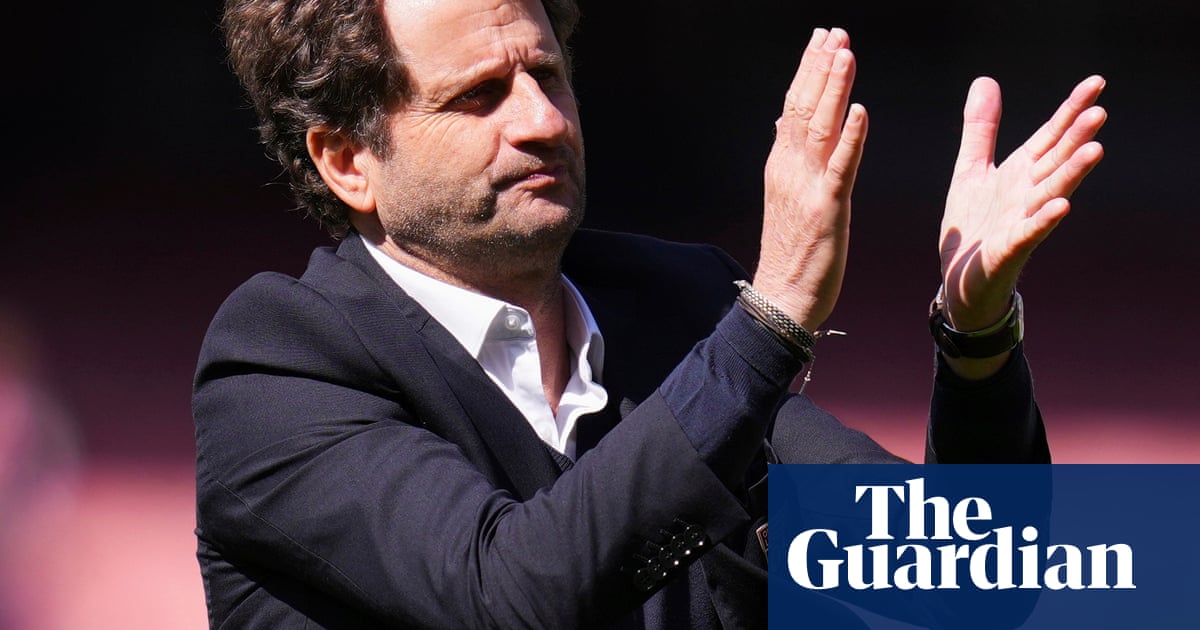The appointment of Joe Montemurro as Tony Gustavsson’s full-time successor on Monday ended a protracted, near year-long search that began when the Swede’s contract expired following the Paris Olympics. Eventually, Football Australia got their man. And given the contradictory task that awaits the incoming coach, they probably couldn’t have done better.
As inevitable as it is to be forgotten in the hullabaloo as next year’s Asian Cup approaches, Montemurro’s tenure will be defined by significantly different expectations and circumstances than those faced by his predecessor. While Gustavsson was, in the words of outgoing chief executive James Johnson, a “tournament coach” recruited to guide a golden generation to tournament success, the landscape greeting Montemurro has shifted. He inherits a team that has simultaneously had base expectations elevated by gilded heroes, many of whom are still in place but with the soil of generational change needing to be tilled. It’s a role in which judgment will be immediate, but a true picture of his tenure won’t emerge for years.
Results reflective of the Matildas’ status as an Asian power with designs on catching Japan will be demanded. That is not unfair. For all their success as changemakers and as the buttress of FA’s balance sheets, winning was always this side’s raison d’être. Japan will enter next year’s Asian Cup as heavy favourites, , but it is not unreasonable to expect a talented team that finished fourth at the World Cup to go far in a tournament on home soil.
Yet this needs to be balanced with a vision for what comes after a core playing group that has been in place for over a decade departs. A new generation won’t just need to be exposed to the senior setup. They will, with the 2027 World Cup and 2028 Olympics approaching, begin to provide more starting players. Close cooperation with junior national teams and the A-League Women will be needed, tough calls will need to be made over ageing players, and greater jeopardy must be injected into squad selection. Steph Catley, Caitlin Foord, Katrina Gorry and Sam Kerr cannot play forever.
Given this high-wire act – maintaining results while also embracing the grind of becoming“head coach of the Matildas programme”– attracting top-drawer international talent was always going to be difficult. That is only compounded by the challenges associated with coaching a nation located a day’s journey from football’s epicentre, and one that does not possess the same level of prestige as major European or North American countries. Indeed, if Montemurro weren’t Australian, it would be difficult to envisage him prematurely leaving a contract with superpower Lyon.
But he is Australian, which has helped FA land a coach who has a trophy cabinet laden with silverware earned across Australia, England, Italy and France. The former Brunswick Juventus midfielder has a vision of the style he wants his teams to play, and combines established relationships with members of the existing squad with a deep connection to Australian football and its pathways. Scrutiny will be important as there are questions; his record in major knockout fixtures is one, but others, such as the attrition that befell his small squads at Arsenal, will potentially be masked by a shift from club to international football.
FA seems to have hit on the right outcome by appointing Montemurro. But unfortunately, the process that landed them here was anything but well executed – with potential flow-on effects for his tenure.
By the time their new coach takes up his position, the Matildas will have logged five camps under Sermanni and played 13 games – crucial contact hours Montemurro won’t get. The interim coach has done his best to blood new talent and prepare for the Asian Cup during this time, but the nature of his stop-gap role placed limitations on what he could do. This was obvious at SheBelieves Cup in January, when the extent to which their rivals were accelerating away while theMatildas sat in coaching purgatory was laid bare.
Sign up toMoving the Goalposts
No topic is too small or too big for us to cover as we deliver a twice-weekly roundup of the wonderful world of women’s football
after newsletter promotion
Having allowed Gustavsson’s contract to expire, his exit should have been well forecast by FA, something Johnson hinted at when he described himself as being“comfortable” soon after. Meanwhile, it was May last year that Montemurro was a free agent – he signed with Lyon in June – and had a bigcome and get mebanner effectively floating over the top of his head when back in Australia. And yet, somehow, it has taken nearly a year for the two to come together.
Given his broader remit andthat the Asian Cup takes place in less than a year, a fair assessment of Montemurro should, short of disaster, look beyond that tournament and towards his effort to oversee generational renewal during the 2027 and 2028 campaigns. But a home tournament, after the magic of 2023, likely doesn’t afford that luxury, and the limited preparation he will get is a rod FA has built for the Matildas’ back.
